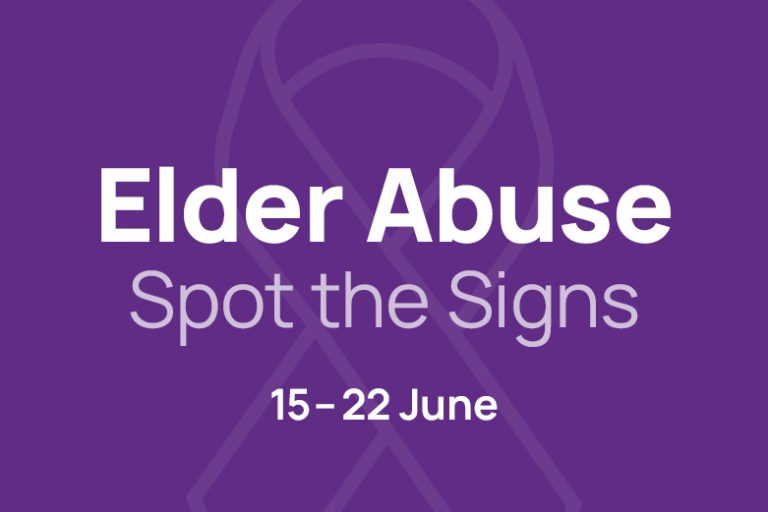Take action to prevent elder abuse
World Elder Abuse Awareness Day (WEAAD) is marked on 15 June. This is a day dedicated to highlighting the often-overlooked issue of elder abuse.
This global observance aims to raise awareness and encourage action to protect our older population from abuse, neglect, and exploitation. As a bank with a significant number of older customers, Heartland takes this issue seriously and is committed to ensuring the safety and wellbeing of all our customers.
Understanding elder abuse
Elder abuse has been defined by the World Health Organization as ‘a single, or repeated act, or lack of appropriate action, occurring within any relationship where there is an expectation of trust which causes harm or distress to an older person’.
Elder abuse comes in many forms. It can be financial, emotional, psychological, physical, sexual, or social. Age Concern explains that elder abuse can occur once or many times and can vary in severity from subtle through to extreme. It can include one or a combination of the different types of abuse. Most often, elder abuse is carried out by someone known to the older person, with 50% of abusers being an adult child in New Zealand. Abusers can also be other family members, relatives, or friends.
Financial abuse
Financial abuse is particularly relevant to the banking sector, as older individuals may be often targeted for their savings and assets. This abuse could manifest through unauthorised transactions, coercion, and manipulation by family members, caregivers or strangers.
In New Zealand
Unfortunately, elder abuse is prevalent in New Zealand, but often not reported. The Office for Seniors confirms that as many as one in 10 older people in New Zealand will experience some kind of elder abuse. Most abuse isn’t recognised or is ignored. Unfortunately, only one in 14 incidents are reported to agencies that can intervene and provide help.
The impact of elder abuse is profound for older people, but also avoidable if they get help and intervention services early.
We can all play our part in speaking up, so older Kiwi can be free from the fear, mental anguish, emotional pain, and distress elder abuse causes.
In 2023, Age Concern reported 75% of alleged abusers were family members
Spot the signs
This year Age Concern New Zealand is running a campaign to “Spot the Signs” of Elder Abuse, which includes:
- injuries such as bruises, cuts, or broken bones
- malnourishment or weight loss
- poor hygiene
- symptoms of anxiety, depression, or confusion
- unexplained transactions or loss of money
- withdrawal from family members or friends.
“If you have a gut feeling something is not right or just an inkling someone is being abused, we want you to talk to us,” urges Billings-Jensen, CEO of Age Concern.
Take action to prevent elder abuse
Many people assume that if they lose the ability to make decisions for themselves, their partner or a close relative will legally be able to make decisions for them. In fact, the law doesn’t work like that. Age Concern advise people to have a conversation around how to get an enduring power of attorney (EPA) and how an enduring power of attorney can be safely allocated to a trusted person or organisation. An enduring power of attorney is a legal document that allows you to plan for the future. It’s crucial that you trust the person and are confident that they will act in your best interest.
How to get help
If you suspect an older person is not being treated well or want to report abuse, please call either the elder abuse helpline 0800 EA IS NOT OK or freephone Age Concern 0800 65 2 105 for free and confidential support.
Visit the Age Concern website for more information.
This information is accurate as at 15 June 2024 and may change.
